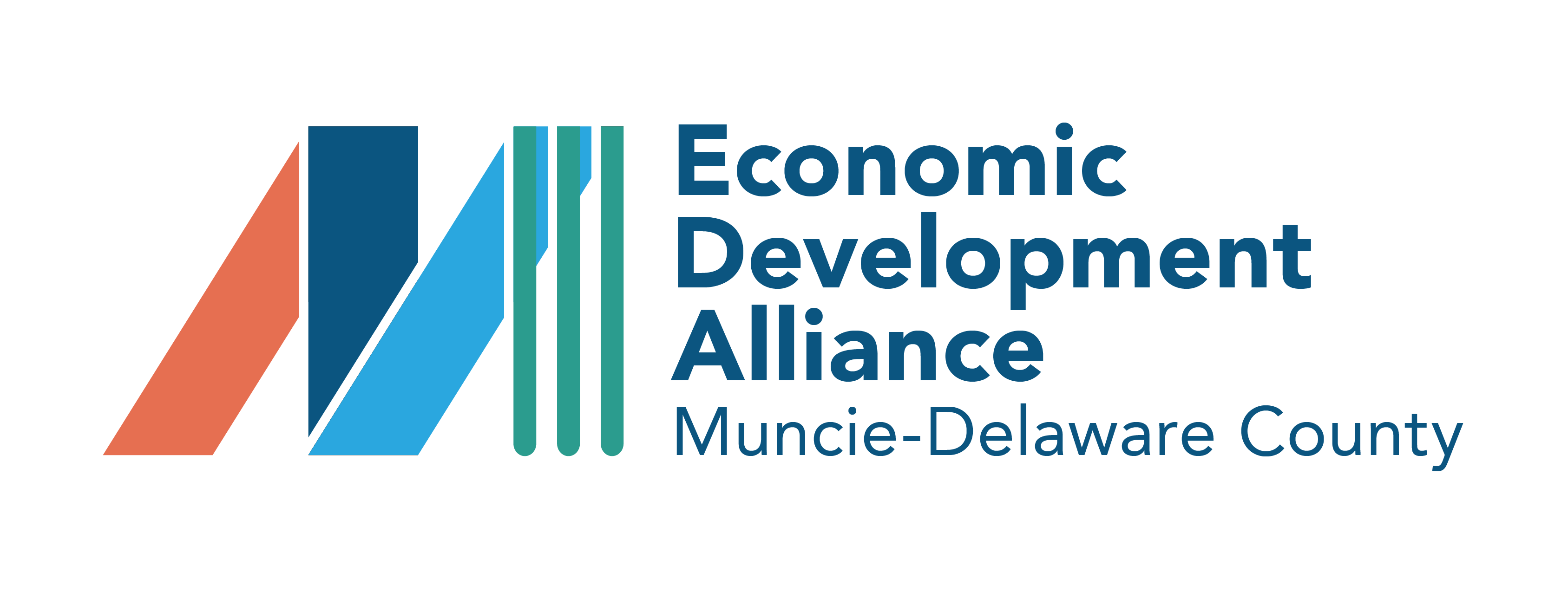Tax Credits & Incentives
Muncie-Delaware County is a strong site selection choice for a variety of reasons, including labor and land availability, transportation access and quality of life. However, the community recognizes that sometimes incentives may be necessary to make a deal possible. Muncie-Delaware County EDA staff is able to assist companies in identifying and exploring applicable incentive programs that are competitive with other metropolitan areas and states.
Tax Increment Financing
The tax Increment Finance (TIF) mechanism in Indiana permits a town, city or county, through a local redevelopment commission, to designate targeted areas for redevelopment or economic development. Those areas can then be designated as “allocation areas” which triggers the TIF process. After such a designation is made, property taxes generated from new construction in the area, rather than going to the normal taxing units, can be set aside and invested back in the area to promote development. These property tax revenues can be leveraged by the issuance of TIF bonds, the proceeds of which also can be used to promote development in the area.
Venture Capital Investement Tax Credit
The Venture Capital Investment Tax Credit program improves access to capital for fast growing Indiana companies by providing individual and corporate investors an additional incentive to invest in early stage firms. Investors who provide qualified debt or equity capital to Indiana companies receive a credit against their Indiana tax liability.
CRED Tax Credit
Delaware County has Community Revitalization Enhancement Districts. The CRED program entitles a taxpayer to a 25 percent credit against the taxpayer’s state and local income tax liability for a taxable year if the taxpayer makes a qualified investment in that year. This credit can be carried forward through 2020. Also, all new tax revenues from the investment are captured by the Delaware County Advisory Council on Industrial Development and can be used to reinvest in the area. Those taxes include employee state taxes paid, real and personal property tax, and corporate income tax. This incentive program, combined with tax increment financing, can allow the company to receive cash up front, thus reducing up front investment. The CRED program is the most flexible and lucrative incentive available in Indiana.
Certified Technology Park
The Certified Technology Park program was created as a tool to support the attraction and growth of high-technology business in Muncie and Delaware County. Designation as a Certified Tech Park allows for the local recapture of certain state and local tax revenue which can be invested in the development of the park.
EDGE Tax Credit
The Economic Development for a Growing Economy (EDGE) is a refundable tax credit program that rewards companies creating jobs and contributing to the growth of Indiana’s economy. EDGE credits are calculated as a percentage of payroll tax withholding for net new Indiana jobs and may be awarded for a period of up to 10 years.
R&D Tax Credit
This credit (also known as the Research Expense Tax Credit) is based on the increase in Indiana R&D over the prior three-year base. In the base year, research expenses must have been at least half of the research expenses. The credit amounts to 15 percent of qualified research expenses on the first $1 million of investment. The credit is applied against income tax liability and may be carried forward for 10 years. There is no carry back, and the credit is nonrefundable.
Skills Enhancement Fund (SEF)
The Skills Enhancement Fund (SEF) provides financial assistance to existing businesses committed to training their workforce. Trainees must be Indiana residents. SEF reimburses eligible training expenses over a two-year term. Companies may reapply for additional SEF funds after their initial two-year term. IEDC typically does not provide reimbursement for training that is required by law.
Industrial Development Grant Fund
The Industrial Development Grant Fund (IDGF) is a state-funded program designed to provide assistance to local units of government for off-site infrastructure. Eligible uses include construction, extension or completion of sewer lines and other drainage facilities, roads and streets, sidewalks, waterlines, rail spurs and sidings, and fiber optics and other IT infrastructure. The project must support new business development, which is defined as either an expansion of an existing company or the location of a new manufacturing facility. The grant award is based on significant new job creation in the state of Indiana. The amount is determined based on project needs.
Hoosier Business Investment Tax Credit (HBITC)
The Hoosier Business Investment Tax Credit (HBITC) encourages capital investment in Indiana by providing a credit against a company’s Indiana tax liability. The amount is based on a company’s qualified capital investment with the final amount determined by the Indiana Economic Development Corporation.
Headquarters Relocation
Indiana provides a tax credit to corporations that relocate their headquarters to Indiana. The credit is up to half the approved moving costs and is assessed against the corporation’s state tax liability. Indiana’s Department of Revenue determines eligibility.
Technology Enhancement Certification for Hoosiers (TECH)
The Technology Enhancement Certification for Hoosiers (TECH) Fund is a reimbursement grant program designed to help existing Indiana companies meet the demands of the new information economy by rapidly increasing the number of certified information technology workers in Indiana.
Industrial Recovery Tax Credit
The Industrial Recovery tax credit provides an incentive for companies to invest in facilities requiring significant rehabilitation or remodeling expense. After a building has been designated as an industrial recovery site, companies may be eligible for a tax credit calculated as a percentage of qualified rehabilitation expense.
Tax Abatement
Tax abatements are available for both manufacturing equipment (up to 10 years) and for improvements to real estate (up to 10 years). The length and/or percentage of abatement is tied to capital investment, wages, and jobs. Also, tax abatement is available on information technology and logistical equipment. Please contact us for our “Understanding Tax Abatement Guide” as well as the guidelines for tax abatement from each legislative body.





